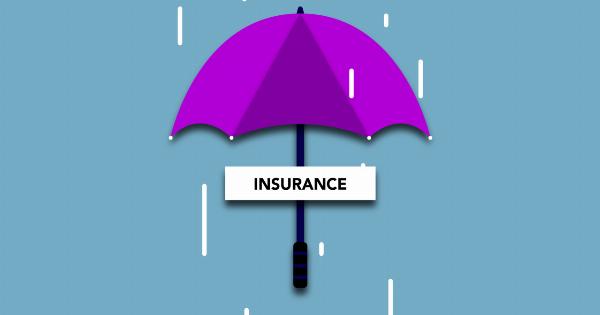Temporary life insurance, also known as term life insurance, is a type of life insurance policy that provides coverage for a specified period of time, typically ranging from 1 to 30 years.
Unlike permanent life insurance policies, which provide coverage for a lifetime, temporary life insurance only offers coverage for a specific term.
How Does Temporary Life Insurance Work?
The way temporary life insurance works is quite simple. When you purchase a temporary life insurance policy, you agree to pay a monthly or annual premium in exchange for a death benefit coverage amount.
If you pass away during the term of the policy, your beneficiaries will receive the death benefit.
Temporary life insurance policies are typically purchased to provide financial protection for a specific period of time.
For example, if you have young children, you may purchase a 20-year term policy to ensure that your children are financially protected until they are adults and can support themselves.
Why Choose Temporary Life Insurance?
There are several reasons why someone might choose to purchase temporary life insurance:.
1. Affordability
Temporary life insurance is generally more affordable than permanent life insurance policies. Due to its limited duration, the premium payments are often lower compared to those of permanent life insurance policies.
2. Customizable Coverage
Temporary life insurance provides the flexibility to choose a coverage term that aligns with your specific needs.
Whether you need coverage for 10, 20, or 30 years, temporary life insurance allows you to customize the policy to fit your desired coverage period.
3. Temporary Financial Liabilities
If you have temporary financial obligations or liabilities, such as a mortgage, student loans, or business loans, a temporary life insurance policy can provide the necessary coverage to protect your loved ones from being burdened with the debts if something were to happen to you.
4. Income Replacement
If you are the primary income earner in your household, a temporary life insurance policy can provide income replacement for your dependents if you were to pass away unexpectedly.
This can help them maintain their standard of living and cover daily expenses until they can become financially independent.
Do You Need Temporary Life Insurance?
Deciding whether you need temporary life insurance ultimately depends on your individual circumstances and financial goals. Here are a few factors to consider:.
1. Financial Dependents
If you have financial dependents who rely on your income to cover their living expenses, such as a spouse, children, or elderly parents, it is worth considering temporary life insurance.
The death benefit can provide financial stability for your loved ones in the event of your untimely death.
2. Debts and Financial Obligations
If you have outstanding debts or financial obligations that would burden your loved ones if you were to pass away, temporary life insurance can be an effective solution.
It can help cover your debts, such as mortgages, loans, or credit card balances, so that your loved ones are not left struggling financially.
3. Long-Term Financial Goals
Consider your long-term financial goals when evaluating the need for temporary life insurance.
If you have a specific period during which you want to provide financial protection for your family, such as until your children graduate from college or until your mortgage is paid off, then a temporary life insurance policy may be suitable.
4. Budgetary Constraints
Temporary life insurance policies are generally more affordable than permanent life insurance policies.
If you have budgetary constraints and are looking for cost-effective coverage, temporary life insurance can be a suitable option to ensure your family’s financial security within your means.
How to Choose the Right Temporary Life Insurance Policy?
When choosing a temporary life insurance policy, there are several factors to consider:.
1. Coverage Amount
Determine how much coverage you need to adequately protect your loved ones. Consider factors such as outstanding debts, future expenses, and income replacement needs.
Calculate the amount of coverage that would provide financial stability for your beneficiaries.
2. Coverage Term
Select a coverage term that aligns with your specific needs. Evaluate factors such as the age of your dependents, the duration of financial liabilities, and long-term goals.
Ensure that the coverage term is sufficient to cover your family’s needs during the specified period.
3. Premium Affordability
Consider your budget when selecting a temporary life insurance policy. Assess the monthly or annual premiums and ensure they are affordable for the duration of the coverage term.
Remember that lapsing on premium payments can result in the policy’s termination and loss of coverage.
4. Insurance Provider
Research different insurance providers and compare their offerings, reputation, and customer reviews. Choose a reputable insurer with a strong financial stability rating to ensure the fulfillment of their obligations in the event of a claim.
Conclusion
Temporary life insurance, or term life insurance, is a valuable financial tool for providing protection during specific periods of time.
It offers affordable, customizable coverage that can help replace income, cover debts, and secure your family’s financial future. Whether you need temporary life insurance depends on your individual circumstances, financial obligations, and long-term goals.
By carefully evaluating these factors and choosing the right policy, you can ensure your loved ones are protected even if the worst were to happen.




























